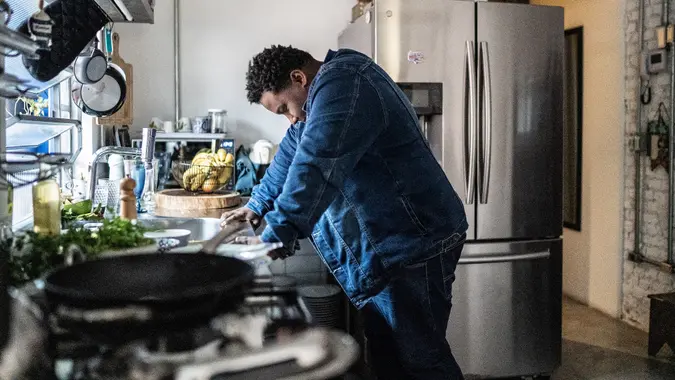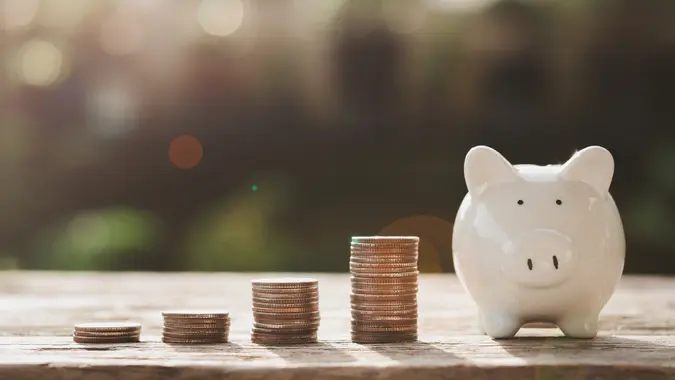Should You Try a Financial Cleanse?

Commitment to Our Readers
GOBankingRates' editorial team is committed to bringing you unbiased reviews and information. We use data-driven methodologies to evaluate financial products and services - our reviews and ratings are not influenced by advertisers. You can read more about our editorial guidelines and our products and services review methodology.

20 Years
Helping You Live Richer

Reviewed
by Experts

Trusted by
Millions of Readers
The personal finance advice on TikTok can be very hit or miss, but the latest trend — “financial cleanses” — may have some merit. Although we’ve already hit February, it’s still not too late in the new year to reevaluate your finances and reset what’s no longer working for you — and a financial cleanse can help you do that.
If you want to detox your finances in 2023, consider trying these “cleanses.”
Evaluate Your Spending and Look for Ways To Cut Back
If one of your goals this year is to “spend less,” start by looking back at where you typically spend your money.
“Take a look at all of your expenses for the last year,” said Jay Zigmont, Ph.D., CFP, founder of Childfree Wealth. “Your credit cards or bank may offer a year-end summary that makes this easy. Look at specific categories, stores or spending and ask yourself if that purchase brought you joy. For many expenses, you may have trouble even remembering what you spent the money on.”
Looking back at the year can show you potential areas to cut.
“For example, each $20 purchase through DoorDash may not seem like much, but when you add it up over the year, you may be surprised,” Zigmont said.
Lock Your Credit Cards
If you have credit card debt, consider locking your cards and not using them. Even if you don’t have debt, avoiding using credit cards can help you rein in your spending.
“Credit cards can be budget busters,” Zigmont said. “Locking your cards will keep you from spending money you don’t have. Move to prepaid debit cards for online purchases, as they set a limit.”
Take Our Poll:
Make a Plan for Paying Off Debt
Detox yourself from debt by making a plan to pay it off.
“With inflation comes rising interest rates. If you are paying the monthly minimum on credit cards, you are likely not even covering the interest now,” Zigmont said. “Set a goal to pay off debt, such as paying off $6,000 this year, and then budget for it monthly — $500 per month, [for example]. You want to make getting out of debt a priority, not something you do with the money that is left over.”
You can also cleanse your home while doing this financial cleanse.
“Go through the rooms that are collecting dust — get up in the attic and start rummaging through those boxes that you just keep pushing off,” said Kristopher Whipple, partner at Kristopher Curtis Financial. “Take advantage of the technology that we have at our fingertips to sell whatever we don’t want to keep. Selling what we already have and don’t need is a great way to jumpstart the process of getting rid of debt with a larger payment, or helping us stay out of debt with some extra cash.”
Align Your Money With Your Values
Some people see money as “dirty,” but this is probably because they’re not aligning their money with their values. Cleanse your finances by making sure the two areas are aligned.
“If you feel bad about where you bank, what investments you own or what companies you support with your spending, you may avoid looking at your budget regularly and you could miss out on opportunities to strengthen your finances,” said Kerry Keihn, financial advisor and partner at Earth Equity Advisors.
“There are many ways to bring your money more in alignment with your values, from green banking, to sustainable, responsible and impact investing, to shopping at conscious companies. The better you feel about what your money is doing, the more you will likely pay attention to it, and the more you can be on top of your finances,” Keihn added.
More From GOBankingRates
 Written by
Written by  Edited by
Edited by 

























